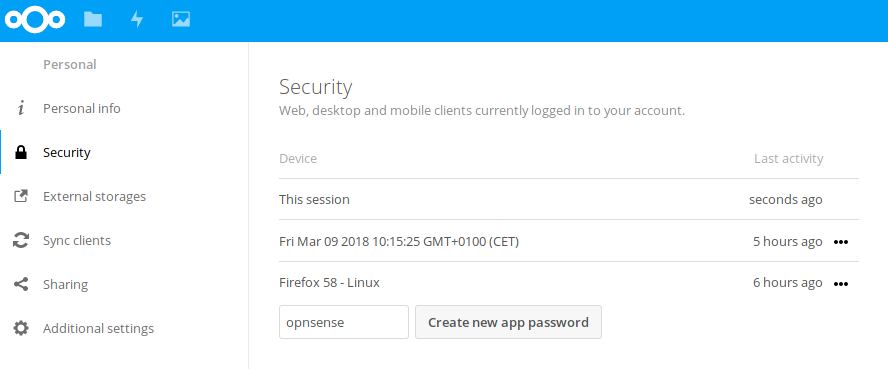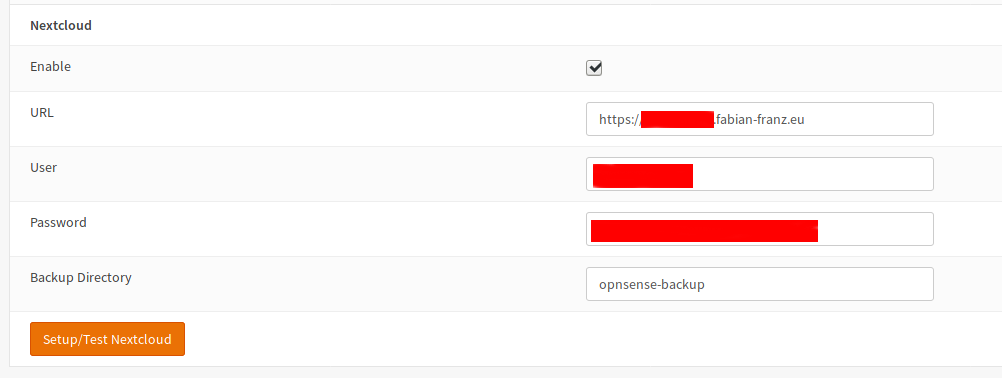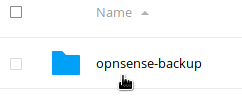Cloud Backup / Nextcloud
Nextcloud is an online storage but in contrast to services like Google Drive it is intended for self hosting. You can download it freely from their website and install it on your webserver.
Remote backup
In OPNsense1 you can backup your configuration directly and automatically to services like sftp and Nextcloud, using the backup feature.
After set-up, the backup feature will run a first backup of the OPNsense configuration file. Then, if the configuration is subsequently changed, a new backup will be run once per day early in the morning.
You may consider specifying additional Cronjobs when more frequent remote backups or remote backups at different times of the day would be required.
Setup Nextcloud API usage
1. Step Create a new user
Click on the user icon top right and click “Users”. In the new page, enter an username and a password into the boxes and click create to create a new user.
2. Step Create an Access Token
Close the modal dialog and remove the default files. Then open the Settings menu (also in the menu top right). Switch to security and generate a App password.

Copy and store the generated password.
3. Step Connect OPNsense with Nextcloud

Scroll to the Nextcloud Section in and enter the following values:
Enable |
checked |
URL |
Base URL of your Nextcloud installation like https://cloud.example.com |
User |
your chosen username |
Password |
paste your app password from step 2 |
Backup Directory |
a name consisting of alphanumeric characters (keep default) |
4. Step Verify the Configuration Upload
When everything worked, you will see the newly created directory after saving the settings:

If you open it, you will see at lease a single backed up configuration file:

References